Climate Issue

Can climate change be considered a human rights issue ?
The text discusses the impact of climate change on human rights, focusing on health and safety, access to resources, displacement and migration, and intersectionality. It argues that climate change can be considered a human rights issue because it has the potential to violate several fundamental rights enshrined in international law. The text concludes that addressing climate change is crucial for protecting and promoting human rights globally.

How can we address the issue of climate refugees in a just and humane way ?
The text discusses the urgent issue of climate refugees, who are individuals forced to leave their homes due to climate change impacts like rising sea levels and desertification. It outlines a comprehensive approach to address this issue in a just and humane way, including recognizing their rights under international law, providing safe shelter and basic needs, promoting economic opportunities, strengthening international cooperation, and investing in climate change mitigation and adaptation measures. The goal is to create a more equitable and resilient world for all, including climate refugees.
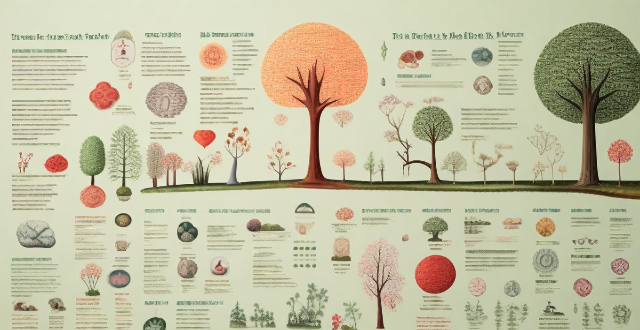
What is the relationship between climate change and environmental racism, and how can we address this issue through climate justice ?
Climate change and environmental racism are interconnected issues that disproportionately affect marginalized communities. The relationship between the two is multifaceted, involving displacement, health impacts, economic disparities, infrastructure vulnerabilities, and limited access to information and resources. To address these issues, pursuing climate justice is crucial, which involves ensuring equal representation in climate policy decisions and equitable distribution of benefits and burdens associated with climate action. Key strategies for achieving climate justice include community engagement, equitable resource allocation, health protection measures, economic opportunities, infrastructure resilience, access to information, legal protections, and global cooperation.

How can climate governance address the issue of climate refugees ?
Climate change is causing people to be displaced from their homes, leading to the emergence of "climate refugees." These individuals face challenges such as lack of legal recognition, inadequate response mechanisms, resource scarcity, social integration difficulties, and economic impacts. To address this issue, a comprehensive approach to climate governance is needed, which includes developing frameworks for international agreements and legal recognition, establishing funding mechanisms, building adaptation and resilience, managing migration, empowering communities, offering skill development, ensuring access to health services, coordinating policies, and continuously monitoring and evaluating policies.
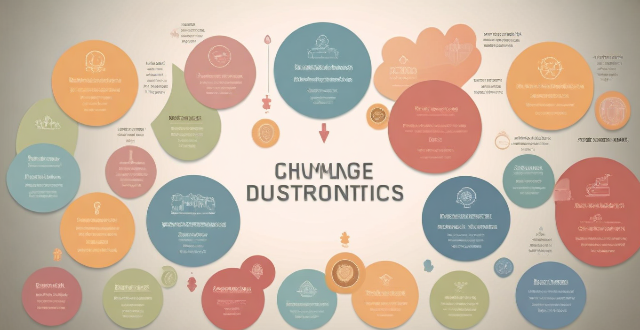
How do climate change negotiations tackle the issue of climate justice ?
Climate change negotiations address the issue of climate justice by recognizing the disproportionate impacts on vulnerable populations, promoting equitable access to resources and technologies, adhering to the principle of common but differentiated responsibilities, ensuring inclusivity in negotiation processes, addressing loss and damage, promoting sustainable development, setting long-term goals and ambitions, and maintaining accountability. These efforts aim to create a more equitable and resilient global response to the challenges posed by climate change.
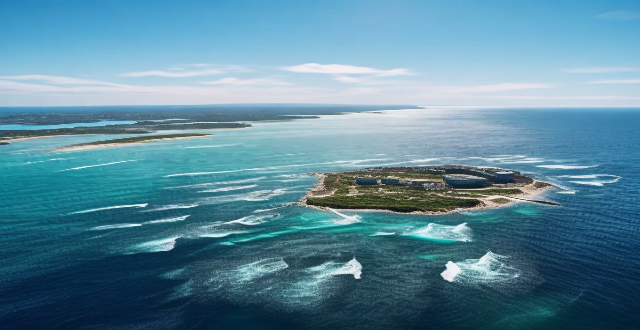
How can we address the issue of climate refugees ?
The issue of climate refugees, individuals displaced by environmental changes such as rising sea levels and extreme weather, requires urgent attention. Addressing this challenge involves raising public awareness, developing supportive policies, implementing adaptation strategies, providing financial assistance, and collaborating with NGOs. Key actions include educational campaigns, legal frameworks for protection, resettlement programs, sustainable agriculture, reforestation, fundraising, and international cooperation.

What are some examples of countries that have been affected by climate refugees ?
The text provides a summary of the impacts of climate change on various countries, highlighting the issue of climate refugees or environmental migrants. It discusses how rising sea levels, desertification, extreme weather events, and other environmental changes are causing people to leave their homes in search of safer and more sustainable living conditions. The summary includes specific examples of countries affected by climate refugees, such as Bangladesh, Fiji, Somalia, Vietnam, and Haiti, and describes the unique challenges faced by each. It emphasizes that addressing the issue of climate refugees requires global cooperation and action.

How can we address the issue of climate change denial in our communication efforts ?
Addressing climate change denial requires effective communication strategies that bridge the gap between scientific consensus and public perception. These include educating with evidence, engaging emotionally, addressing misinformation, building trust through transparency, promoting dialogue and collaboration, tailoring messaging to different audiences, empowering through action, and staying updated and flexible. By employing these strategies, we can foster a more informed and engaged public in the fight against climate change.

Can national governments alone tackle the issue of climate change, or is international cooperation necessary for effective global climate governance ?
Climate change is a complex issue that requires global cooperation to effectively tackle. While national governments can implement policies and invest in research within their borders, the interconnectedness of climate change factors necessitates international collaboration. Global agreements, technology transfer, and financial support are crucial components of this cooperation. Ultimately, a combination of national efforts and international partnerships is needed for effective climate governance.
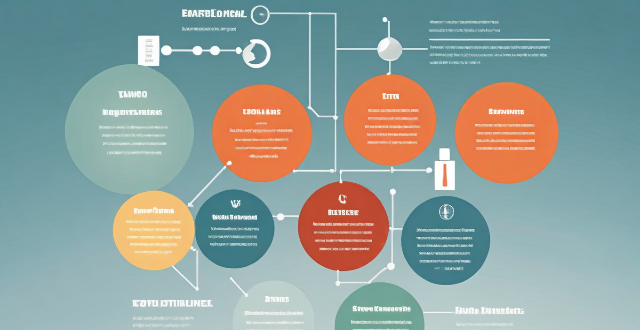
What actions are world leaders taking to address the urgent issue of climate change ?
World leaders are taking various actions to address the urgent issue of climate change, including setting emission reduction targets, investing in renewable energy, promoting energy efficiency, encouraging sustainable agriculture practices, supporting research and development, and fostering international cooperation.

Why is it important to address violence against women as a human rights issue ?
Violence against women is a widespread problem that violates basic human rights and has far-reaching consequences for individuals, families, communities, and society at large. Addressing violence against women as a human rights issue is essential for upholding these basic rights, promoting gender equality, breaking the cycle of poverty and marginalization, and fulfilling our legal obligations under international law. By raising awareness about this issue and working towards creating a world where all individuals can live free from fear and violence, we can help create a more equitable and just society for all.
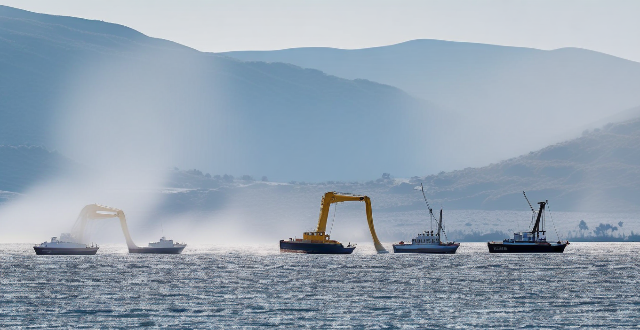
How has the issue of climate change impacted international trade and commerce ?
Climate change has significant impacts on international trade and commerce, including disruptions to supply chains due to extreme weather events, changes in agricultural production affecting food security and prices, infrastructure damage leading to increased costs for businesses, rising energy costs as countries transition to renewable sources, carbon emissions regulations requiring companies to invest in new technologies, and changing consumer behavior demanding sustainable products. Businesses must adapt to these changes to remain competitive and ensure long-term sustainability.
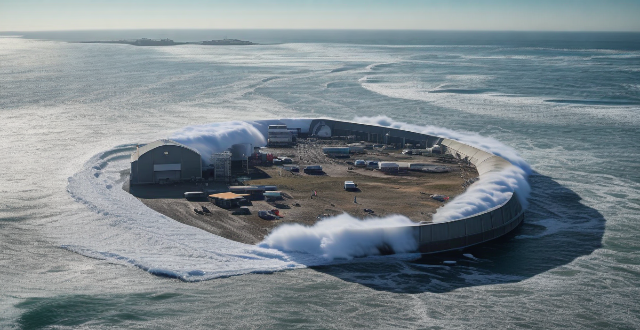
What is a climate refugee ?
Climate refugees are individuals who must relocate due to environmental changes from climate change, such as sea-level rise and extreme weather events. This displacement affects social structures, economies, and cultures, and there is a need for international cooperation and sustainable practices to address the issue. There is currently no specific legal status for climate refugees under international law.

How have recent climate disasters impacted the discourse on global climate governance ?
The article discusses how recent climate disasters have impacted the discourse on global climate governance. It highlights increased awareness and urgency of addressing climate change, focus on resilience and adaptation measures, and the need for collaboration and cooperation among nations. The article concludes that effective strategies and policies are necessary to mitigate the impacts of climate change and ensure a sustainable future.
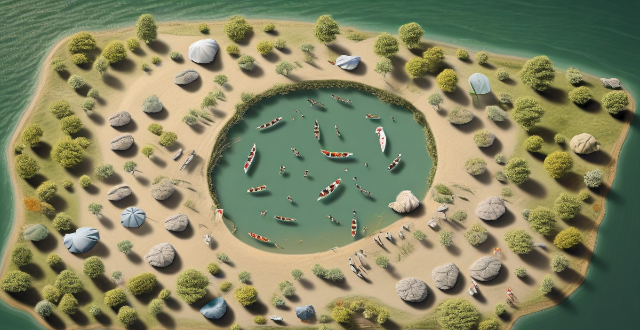
What are the implications of ignoring the views of climate skeptics on climate policy ?
Ignoring climate skeptics' views can lead to lack of diversity in thought, potential for misinformation, loss of public trust, opportunity costs, and polarization. Policymakers should consider diverse perspectives and engage with all stakeholders for effective solutions.

How can we differentiate between legitimate climate science and the opinions of climate skeptics ?
This article provides guidance on how to differentiate between legitimate climate science and the opinions of climate skeptics. It emphasizes the importance of looking for peer-reviewed research, checking the source of information, evaluating the evidence, considering the motives of those making claims, and consulting experts in the field. By following these guidelines, individuals can make informed decisions about climate change and contribute to efforts to address this critical issue.
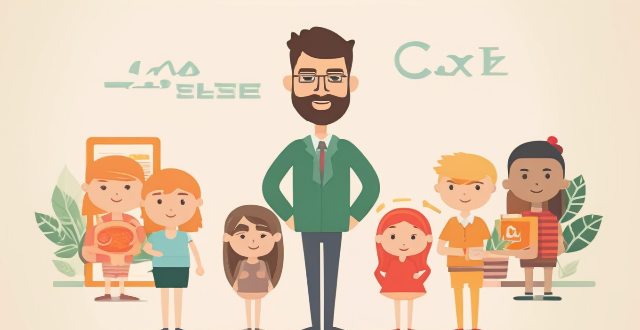
What challenges do developing countries face in achieving climate resilience ?
Developing countries face numerous challenges in achieving climate resilience, including economic, social, political, and environmental issues. These challenges range from limited financial resources and dependency on climate-sensitive sectors to weak healthcare systems and food insecurity. Additionally, lack of policy coherence, weak governance, and international pressure further complicate matters. Environmental challenges such as biodiversity loss, water scarcity, and increased frequency of natural disasters also pose significant threats. Addressing these interconnected issues through collaborative efforts is crucial for building more resilient societies capable of withstanding the adverse effects of climate change.

What are the main causes of climate refugee migration ?
Climate refugees are people forced to leave homes due to climate change impacts, including natural disasters, sea-level rise, and changes in agricultural productivity. These factors have led to displacement of millions globally, requiring a comprehensive approach to mitigate effects and support affected individuals.
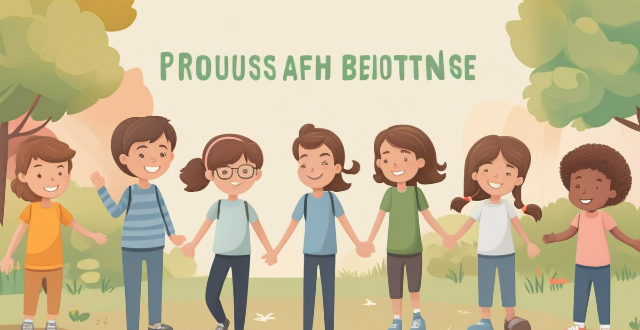
How does air pollution caused by climate change affect children ?
The provided text discusses the impact of air pollution, exacerbated by climate change, on children's health. It outlines both immediate and long-term health effects, including respiratory issues, developmental concerns, chronic conditions, and potential for other health problems. The text also highlights the socio-economic impact of these health issues, such as school performance and healthcare costs. Prevention and mitigation strategies are suggested, including reducing pollution sources, promoting clean energy, awareness and education, and urban planning. The conclusion emphasizes the need for collective action to protect children's health and future.
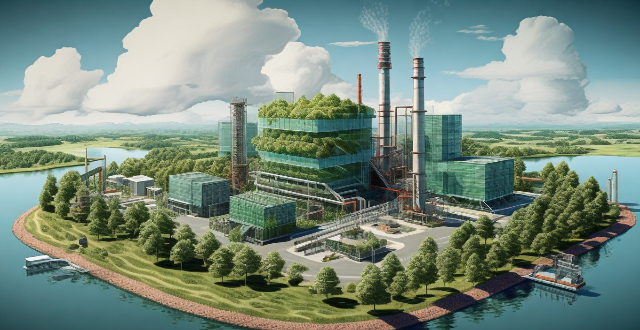
How effective has the United Nations Framework Convention on Climate Change (UNFCCC) been in addressing global climate change ?
The United Nations Framework Convention on Climate Change (UNFCCC) is a global treaty adopted in 1992 to stabilize greenhouse gas concentrations and prevent dangerous interference with the climate system. While it has achieved some successes, such as promoting international cooperation and establishing mechanisms for climate finance and technology transfer, its effectiveness has been limited by factors like lack of compliance and political will. To make a significant impact on global climate change, stronger commitment and concrete actions from all parties involved are necessary.
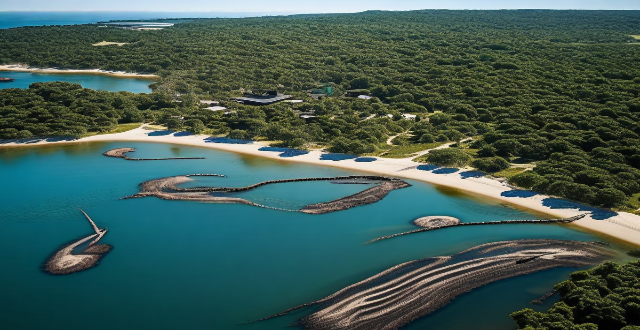
Which countries are most affected by climate refugees ?
The text discusses the issue of climate refugees, individuals displaced due to the impacts of climate change such as sea-level rise, extreme weather events, and alterations in ecosystems. It provides a detailed exploration of the nations most affected by this growing crisis, including Bangladesh, Small Island Developing States (SIDS), Nigeria, Fiji, Vietnam, Indonesia, and Pacific Nations. The countries face various challenges such as sea-level rise, cyclones and flooding, droughts, storm damage, coastal erosion, saltwater intrusion, forest fires, land subsidence, island depopulation, and resource scarcity. The text concludes that addressing this complex issue requires international cooperation, strategic planning, and innovative solutions to mitigate both the causes and effects of climate displacement.

How do climate summits contribute to global efforts to combat climate change ?
Climate summits play a crucial role in the global fight against climate change by setting targets and goals, encouraging international cooperation, promoting policy and technological innovation, raising awareness and mobilizing action, and financing climate action.

How can we improve climate change education in higher education institutions ?
Climate change is a pressing global issue that requires immediate attention and action. Higher education institutions play a crucial role in shaping the future leaders and decision-makers who will tackle this challenge. Therefore, it is essential to improve climate change education in these institutions to ensure that students are well-equipped with the knowledge, skills, and attitudes necessary to address this complex issue. Key strategies for improving climate change education include integrating climate change into curriculum, promoting research and innovation, engaging students in real-world projects, fostering sustainability on campus, enhancing faculty training and development, and encouraging student leadership and advocacy. By implementing these strategies, higher education institutions can play a vital role in addressing climate change and creating a more sustainable future.

What are the potential impacts of climate conflicts on global security ?
Climate conflicts have the potential to significantly impact global security by causing economic disruption, political instability, and even armed conflict. Governments and international organizations must recognize this issue and take action to mitigate the effects of climate change.

What role should public opinion play in climate decision-making ?
The text discusses the importance of public opinion in climate decision-making, emphasizing that it can influence policymakers, shape public discourse, and drive action towards addressing climate change. The author outlines ways to influence public opinion, such as education, advocacy, media, and personal action.

How has climate awareness changed over the years ?
Over time, there has been a substantial increase in public recognition of climate change as a real and pressing issue, leading to greater demands for action from governments, businesses, and individuals. This shift is marked by an increased understanding of the implications of climate change and a growing concern for its impact on the environment and human life.

What role do scientists play in shaping climate change legislation ?
Scientists play a crucial role in shaping climate change legislation by providing evidence-based research, influencing policy development, and educating the public and raising awareness about the issue. Their expertise helps policymakers understand the severity and potential consequences of climate change, identify patterns and predict future scenarios, assess impacts on ecosystems and human health, advise on effective strategies for addressing climate change, testify before government bodies, participate in public forums and debates, publish scientific papers and reports, collaborate with media outlets, and participate in educational programs and workshops.
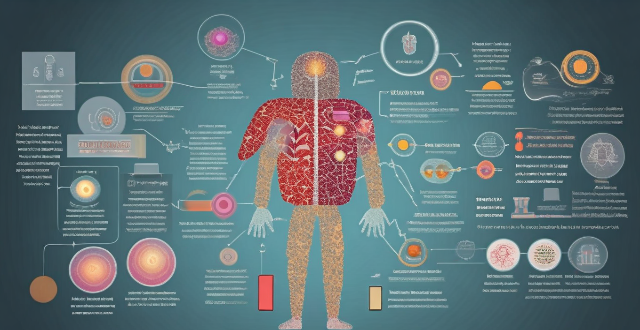
How can we use storytelling techniques to communicate climate science more effectively ?
Storytelling techniques can make climate science more accessible and engaging by creating emotional connections, simplifying complex ideas, humanizing data, and promoting sharing. Effective strategies include using case studies, visual narratives, characters, analogies, and interactive elements to enhance retention and inspire action. By harnessing the power of storytelling, we can foster a deeper understanding and emotional connection to the urgent issue of climate change.

What role does climate migration play in national security concerns ?
Climate migration, driven by climate change impacts like sea level rise and extreme weather events, is a growing issue with significant implications for national security. It increases migration pressures, causing economic disruptions, political instability, resource scarcities, and environmental degradation. Addressing these challenges requires a multifaceted approach that includes efforts to mitigate climate change, improve resilience in vulnerable communities, and develop effective strategies for managing migration flows.

What is the definition of a climate refugee ?
Climate refugees are individuals or groups forced to leave their homes due to the adverse effects of climate change. They face challenges related to basic needs, legal status, employment, social integration, and mental health. Examples include Tuvaluans, Bangladeshis, Sahelians, and Caribbean Islanders.